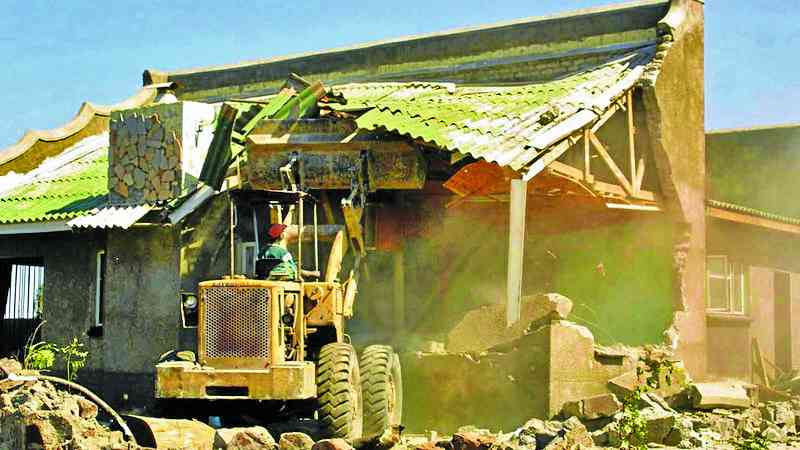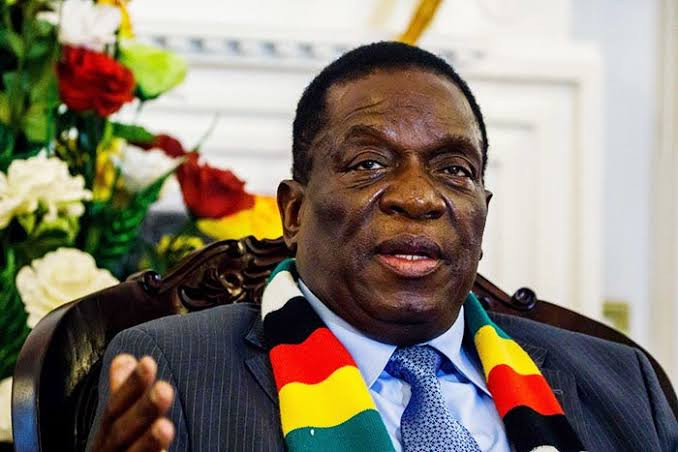
TWO decades after a disastrous attempt at land reform, which drove out more than 400 white commercial farmers, the Zimbabwean government is fighting illegal settlers on State land handed out by traditional leaders, land barons and corrupt government officials.
Since January 10, a government operation — code-named “No to land barons and illegal settlements on State land” — has been run in both rural and urban areas.
So far, according to the Zimbabwe Republic Police (ZRP), 3 775 suspected people have been arrested. Of those, 985 have appeared before the courts, with some fined the equivalent of about R1 000 (US$51,83) each.
The majority of the arrests are of people who bought land from barons, village heads and corrupt government officials.
The ZRP's books showed that some of the people were illegally resettled on grazing land in parts of farms that were taken from commercial farmers at the turn of the century.
In one instance, Manicaland's provincial civic registrar in charge of land audits, Joyce Munamati, appeared in court for selling State land, which she received under the land reform exercise, to local businessman Calvin Ziki for R285 000 (US$14 770).
In another case, Michael Sadziwa, a village head in the Mutasa area of Manicaland, appeared in court for parcelling out land on the outskirts of Osborne Farm — a farm that was siezed from a commercial farmer to resettle landless locals.
“It was brought to our attention that there have been and continue to be illegal invasion of greenway spaces in Mabelreign [a residential area in Harare], on State land and council land,” Local Government and Public Works minister Winston Chitando said.
- Harare businesswoman turns heat on police CCU over 'bias'
- Letter to my people: Criminals are hiding in plain sight
- 5 Zim cops off to South Sudan
- Crime tech: Technology can eradicate corruption
Keep Reading
“Government's position is that it is illegal to parcel out State land or council land for whatever purposes,” he said.
Government has reacted by destroying houses and other structures erected on the illegally-acquired land.
Some owners, left with nowhere to go, have since approached the Zimbabwe Human Rights Association (ZimRights) to engage the State.
ZimRights has called on the government to halt evictions, which “are causing a wholesale violation of human rights”.
The government said it was “committed to ensuring that all citizens are settled in an orderly manner on allocated land”.
One of the affected people told News24 that he had failed to secure land during the initial land reform programme of the early 2000s.
“When the land reform started, we were made to believe it was political. Some of us were a bit too lazy to apply for that land because we feared reversals.”
Instead, he found himself buying such land from third parties.
A 2010 inquiry established that 40% of land taken for redistribution went into the hands of then President Robert Mugabe and his allies.
Last year, a divorce case filed by his daughter, Bona Mugabe, revealed how much land was in her hands.
On January 19, the government of Zimbabwe lost a R2,3 billion lawsuit to Border Timbers Limited in England.
Border Timbers is partly owned by German shareholders, and the farms were seized in Zimbabwe during the land reform period, despite a binding Bilateral Investment Promotion and Protection Agreement signed by Zimbabwe and Germany in 1995.
It has been fighting for compensation since 2010, without success.
Now, it could attach Zimbabwean assets in England to offset the debt, should Zimbabwe's government still fail to pay.
But Zimbabwe's Attorney-General, Virginia Mabiza, told the State-controlled Herald that Zimbabwe still had legal options open in the case. — News24







